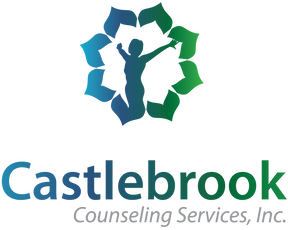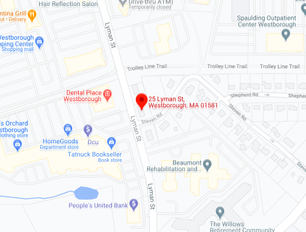DBT Conference Fun!By Kerrie Toole, LICSW, DBT-LBC Certified Clinician, Executive Director
In November, I attended the 28th Annual International Society for the Improvement and Teaching of Dialectical Behavior Therapy (ISITDBT) Conference and Association of Behavioral and Cognitive Therapies Conference. This year’s combined ISITDBT and ABCT conferences were held in the birthplace of DBT, Seattle, Washington, and also coincided with the 30th anniversary of the publication of Dr. Marsha M. Linehan’s groundbreaking treatment textbook. While Marsha herself has retired out of the public eye, a number of her early team members were present at the Conference and shared their wisdom, alongside researchers and practitioners who are on the cutting edge of exploring aspects of BPD and the benefits of using DBT to treat this and many other conditions. Dr. Sheila Crowell presented the Keynote Address for the ISITDBT conference, regarding Emotion Dysregulation factors across the lifetime, and the impact of providing DBT interventions to pregnant mothers to improve emotion regulation skills and the intergenerational transmission of stressors. A Research Lighting Round followed, with four groundbreaking studies regarding varied topics of utilizing apps and programs to enhance practice and skill usage between sessions, utilizing DBT in schools, skill building to help clients integrate skills beyond short-intensive treatment episodes, and ways to reduce risk of emotion dysregulation in early life experiences. Two break-out sessions of clinical workshops followed, as well as a presentation to the full conference by Christina Moon, a Zen Priest, regarding the racial and historical context of Zen and Buddhism and considerations for DBT practitioners. An update on DBT research in the past year was presented by Dr. Melanie Harned, the developer of the DBT-PE treatment protocol for PTSD. Dr. Harned reviewed research that showed promising results as well as mixed results with adolescents, which shows important guidelines about how much “dosage” of DBT and who is teaching DBT skills is effective with this population. The main takeaway is that, unsurprisingly, the longer the intervention over time, the better the outcomes. Due to the hybrid nature of this year’s conference (and conferences to come!), Castlebrook had the greatest number of therapists in attendance! There was lots of excitement from Castlebrook therapists about being inspired by the presenters, ideas about new directions in DBT, and new ways to support our clients. I also got to participate in the ABCT Conference on Friday through Sunday, with many panels, mini workshops, and research symposia directly pertaining to DBT, BPD, and emotion dysregulation. These presentations have given me inspiration to bring back to the Castlebrook DBT Teams to streamline and enhance our DBT Coaching and Consultation Teams, and explore therapist stylistic strategies to engage clients and their families. This year, I noticed an increased focus on ways to engage and train up Parents and Caregivers of adolescent and young adult clients, and I spent a lot of time talking with the foremost experts in this area about aspects of our respective Parent Programs. In addition to all the revolutionary research and program development shared by presenters, much fun was had connecting with DBT experts and practitioners from across the country and nerd out together. I was even invited by my friends at the “All Therapists Are Jerks, And…” podcast to talk with them about our experiences at the conference, and you can listen to those episodes here. As I love to say, this annual conference is my version of Comic-Con! Comments are closed.
|
Archives
May 2025
Categories |
Mission Statement
Castlebrook Counseling Services, Inc. is a group of private practice clinicians with a shared goal of strengthening our community by providing therapy and clinical support designed for children, adults, and families to successfully meet life’s challenges.
 RSS Feed
RSS Feed

